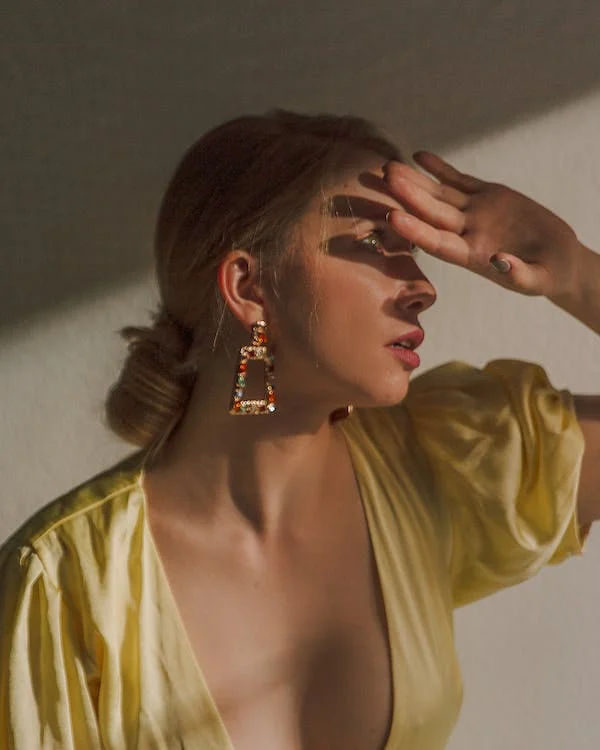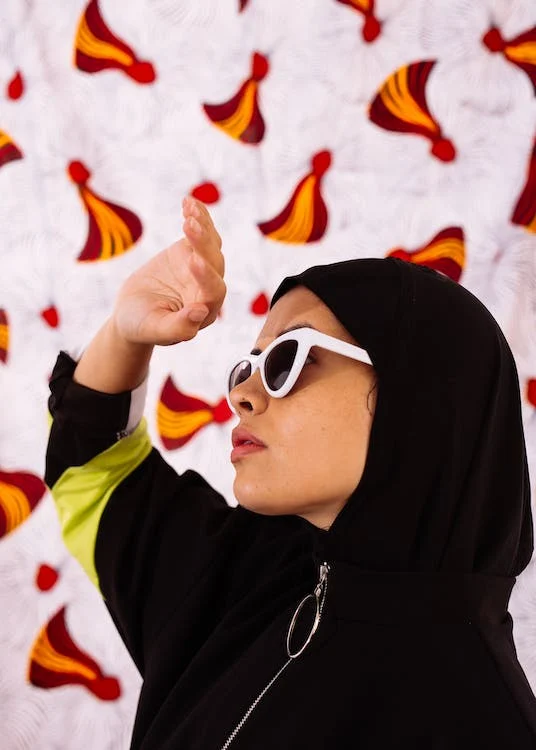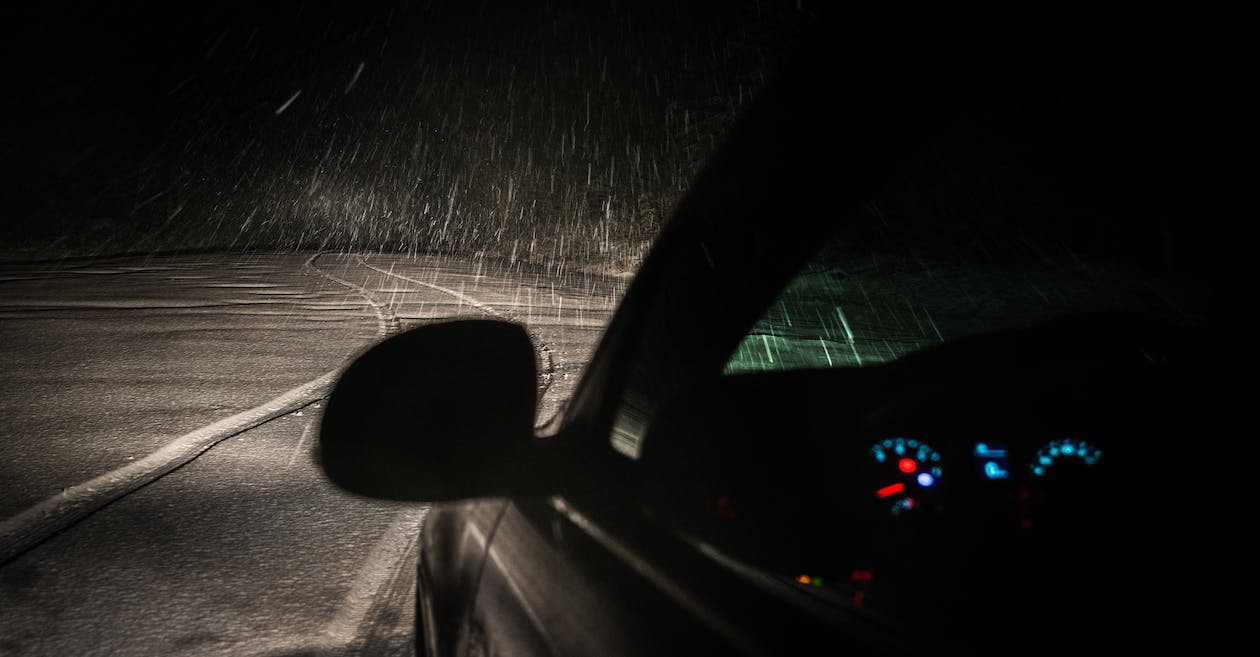Glare and Photophobia
Greetings to all and sundry,
All too soon the weekend has come to an end and it is another week once again, the stress begins in a few hours to come, I hope you are ready for the week though, you had good rest and a good family time or fun time during the relaxation period.

If you see me here then you can probably guess that I am coming to talk about the eye, well, you are not wrong, as an Optometrist, it becomes a part of my life and a daily routine to want to educate and share my knowledge about the eye and so we would be continuing with our lessons today.
Today we are going to look at a phenomenon that is quite common when it comes to the eye, there are different situations and instances and then there are those who mistake it for another. Hopefully, by the end of this article, you would be able to put things where they belong and understand things better whiles also protecting yourself. Let's look at Glare and Photophobia.
Introduction
Light or illumination is of great importance whenever we talk about the eye, this is because the eye operates with a light, it is light impulses that enable us to see, without light we would not be able to see which is why in the evening vision is quite diminished.
The eye makes use of these light impulses and changes them into electricity via a process known as phototransduction, the electrical impulses then travel via neural synapses to the brain for interpretation and what we refer to as seeing or sight or vision, whichever you prefer to use.

Now whiles this light is crucial for vision it could also be detrimental to your eyes at a point. Your retina cells which take in the light and change it to electricity can get killed by extreme or intense light focus at one point which can also result in something we call glare, which is quite discomforting.
Glare lights are usually not enough to cause major damage to cells but it is powerful enough to bleach the cells such that vision is disrupted or vision because quite blurred and very uncomfortable for whoever finds themselves in that situation.
Glare
So when we talk about glare, as I have already mentioned we are looking at a bright light or discomforting light that impedes our vision. People tend to mistake glare for photophobia because they are similar but not the same. In photophobia or extreme sensitivity to light, the individual cannot tolerate bright light or light at all in some cases.
And so on a sunny day, a highly photosensitive individual may not be able to walk through at all and would have to literally close their eyes to walk through, they mostly squint to keep as much light away from the eye as possible. The problem actually stems from the trigeminal nerve however in glare we are dealing with just light impeding our vision's clarity.

And so whiles someone experiencing glare may be able to walk in the sun on a sunny day, their vision may be impeded such that objects are not clear or maybe a bit faded or reduced in contrast. I hope you are getting the difference now?
Now with glare, there are two types, the first, we all experience it at any point in time and it is not because we have an ocular pathology or something is wrong with us but because the light coming to us may be too intense for us and thus it blinds us completely cutting off our vision.
This is known as disability glare and the best example of this would be the glare you experience from oncoming traffic at night as a pedestrian or driver when they have their high light on. Your vision may be temporally blocked as the light overshadows your entire retina, bleaching all your cells. Most often you try to either block the light or close your eyes until it passes away.
Another example of this would be the glare you experience when intense light from behind you falls on your fon or laptop and makes things on the screen unclear. You try to open your eyes wider and try to bring your too closer for a chance to see what's on your screen as contrast is greatly diminished. I am sure you are thinking of other instances of this happening to you? Yes, that's disability glare.
Now the other one we will look at is known as discomfort glare. This glare is almost always there, it's not so transient like the disability glare and it is mostly associated with some form of pathology on or in the eye. And so due to that anatomical or physiological dysfunction, one would always be experiencing it.
And so in cataract patients, when the lens within the eye becomes opaque, it spreads out the light from the environment as it goes into the eye. The light scattering onto the retina produces discomfort glare and because one would still have to see and light would have to go into the eye for seeing to be done, cataract patients tend to suffer from discomfort glare.

It is also common among individuals with some form of corneal dysfunction, scaring, haziness, etc, also individuals with aniridia, albinism, and achromatopsia tend to suffer from discomfort glare all the time. What we try to do for these individuals is to try to reduce the light with the aid of photochromic lenses which also works well in the case of photophobia.
However in cataract patients, depending on the type of cataract the use of photochromic lenses may make things worse for them and may need to be given white lenses with a prescription to focus the light onto the retina and reduce the scattering. Whichever the case may be, if you believe you are suffering from discomfort glare I would advise you to see an optometrist for a comprehensive examination.
Conclusion
If disability glare tends to be something that bothers you so much especially if you are a driver and you are having night driving difficulties some lenses have been designed to reduce the glare and make things better for you. Polaroid lenses work well, and anti-reflective lenses work well too.

See your Optometrist for a comprehensive examination so you may be given what best suit your needs. Never take any issue relating to your eyes or sight for granted because in many instances vision loss is irreversible. Avoid over-the-counter medication without proper care, when in doubt always consult a professional and do well to love your eyes. It is a pleasure serving today and I wish you an amazing week. Thanks for your time, Cheers!.
Further Reading
Boadi-Kusi, S. B., Austin, E., Abu, S. L., Holdbrook, S., & Morny, E. K. A. (2021). Disability glare and nighttime driving performance among commercial drivers in Ghana. Journal of occupational health, 63(1), e12279. https://doi.org/10.1002/1348-9585.12279.
GUTH S. K. (1961). Discomfort glare. American journal of optometry and archives of American Academy of Optometry, 38, 247–259. https://doi.org/10.1097/00006324-196105000-00002.
Williamson, T. H., Strong, N. P., Sparrow, J., Aggarwal, R. K., & Harrad, R. (1992). Contrast sensitivity and glare in cataracts using the Pelli-Robson chart. The British journal of ophthalmology, 76(12), 719–722. https://doi.org/10.1136/bjo.76.12.719.
Hamedani, M., Dulley, B., & Murdoch, I. (2021). Glaucoma and glare. Eye (London, England), 35(6), 1741–1747. https://doi.org/10.1038/s41433-020-01164-8
Congratulations @nattybongo! You have completed the following achievement on the Hive blockchain And have been rewarded with New badge(s)
You can view your badges on your board and compare yourself to others in the Ranking
If you no longer want to receive notifications, reply to this comment with the word
STOPCheck out our last posts:
Support the HiveBuzz project. Vote for our proposal!
Haha, yes😊 thanks
You are welcome @nattybongo, that's with pleasure! We wish you a happy buzzy week 😊👍🐝
Haha thank you, my next target is a buzzy month😍🥰
Good luck with your new target @nattybongo
Thanks for your contribution to the STEMsocial community. Feel free to join us on discord to get to know the rest of us!
Please consider delegating to the @stemsocial account (85% of the curation rewards are returned).
Thanks for including @stemsocial as a beneficiary, which gives you stronger support.
This describes me perfectly. Ever since I was a kid I was very sensitive to bright sunlight - and we got lots of it in Cyprus. Even sunglasses weren't of much help in school (where they weren't allowed) or when the sunlight was so bright it seemed to enter from the sides. This often led to avoidance of sports and other very outdoorsy activities. Cos my options were either walk around with my eyes closed, or else let tears run down my face, and no male kid wants to be seen crying!
I can imagine the feeling, you felt helpless, i meet of lot of patients like yourself on the daily, some would literally come my consulting room crying because its a sunny day and would ask what's wrong thinking they are sad because of perhaps some pain they are going through, then they would tell me they are fine but the tears, well they just can't help it.
I hope things are better for now though? It quite unfortunate the glasses weren't solving your problem completely but i am certain it helped? Atleast it was better than without it, i think it was because it wasn't allowed to be used in school thus why you had to endure that torture, it tends to work a lot for my patients though.
It a pleasure seeing you around, thanks for reading and i look forward to seeing more of you, do not hesitate to reach out if you have any ocular issues you would want us to talk about. I am on discord as nattybongo too.
Again, 100% me! Embarrassing! Trying to avoid people, cos I knew they would see the tears but they wouldn't ask anything, and who knows what they would think!
Yes it definitely helped. It's just some summer days in Cyprus are so explosively bright that the light seems to come in through the sides, or in some way indirectly affect the eyes, dunno how to describe it! And yeah definitely at school the main problem was that the sunglasses weren't allowed.
Thanks for the article and response!
My pleasure sir, always available to help